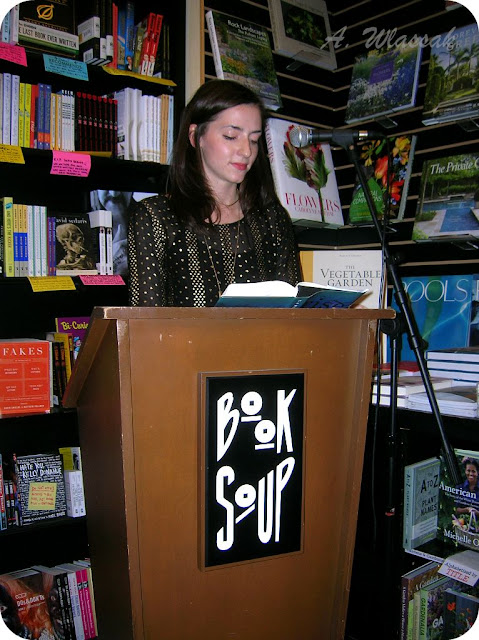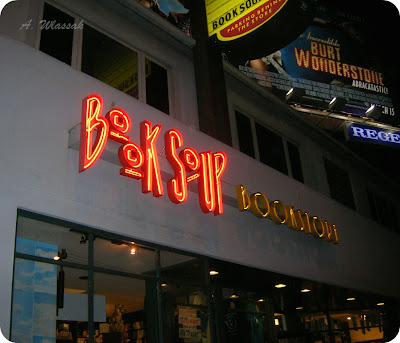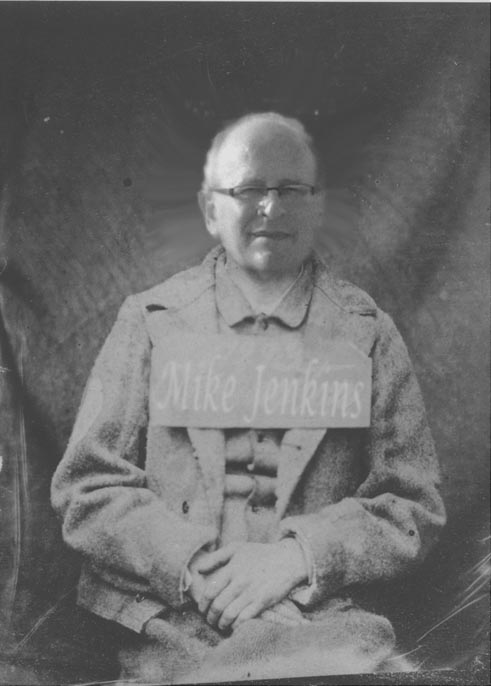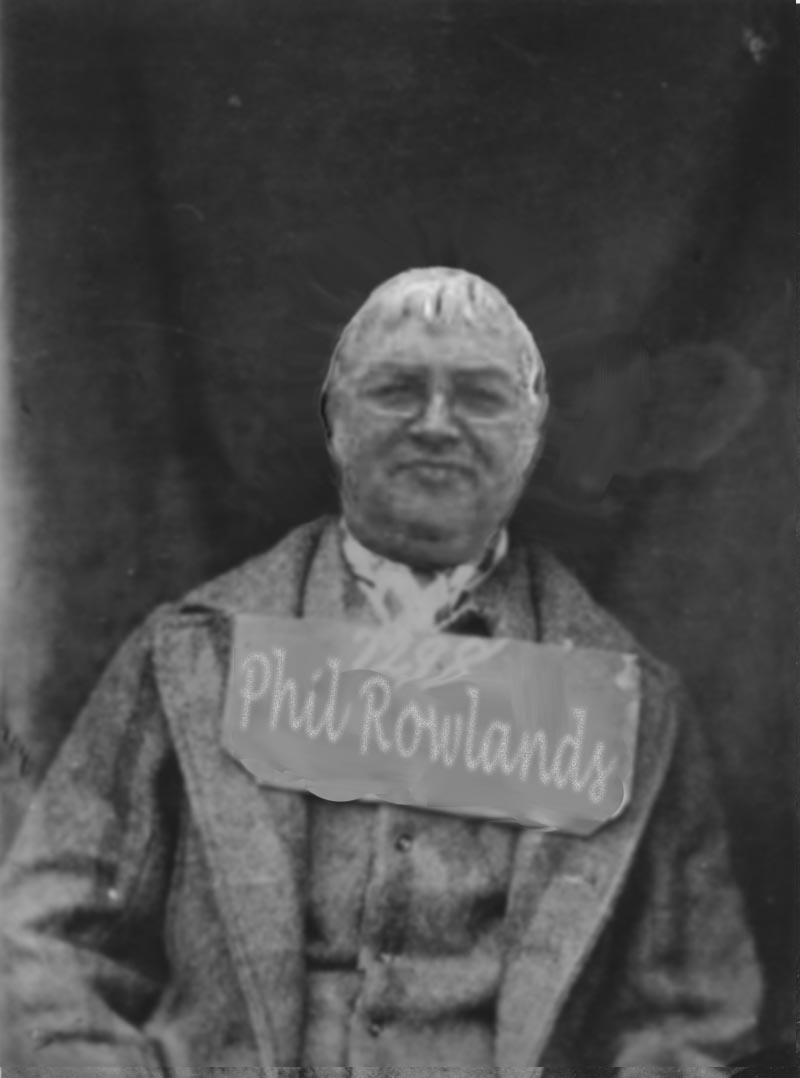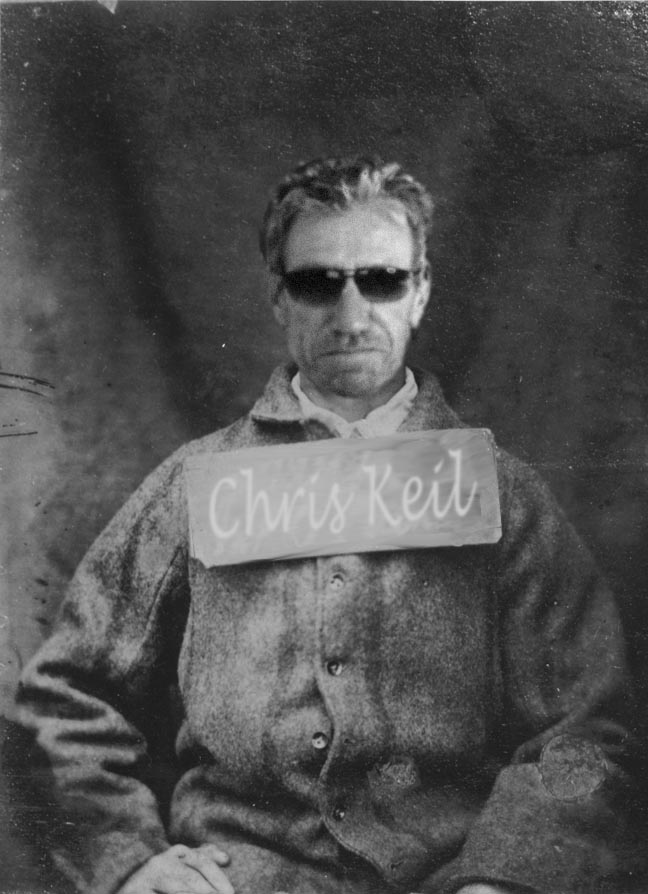Blogs
My friend Lucy Long is compiling an American food dictionary. She asked me to write a short article about Welsh American food traditions. If you would be willing to share some family and/or community traditions, I would be really greatful! Of course I will include Welsh cakes, te bachs and St. David's Day banquets. But there is a lot more information about Welsh food than Welsh American food! Please send me any ideas, comments, etc. This will not include recipes, it is just a short informational article. Thanks! Contact me at my home email at betty.belanus@gmail.com
The act of union between Wales and England received the royal assent of Henry VIII on 14th April 1536 .
The Act divided Wales into 13 counties, with much of the border territory being annexed to England despite being Welsh speaking.
The consequences of the act were;
* All administration in Wales was to be carried out in the English language and no one using the Welsh language 'shall have or enjoy any manner of office,'
* The modern borders of Wales were established.
* Wales elected members to the English Parliament; the first members took their seats in the Tudor Parliament in 1542.
* The Court of Great Sessions was introduced, a system particular to Wales. They met twice a year in each county, administering English law in the English language. Of its 217 judges in its 288 years of existence, only 30 were Welshmen.
* Every county appointed a Sheriff and 9 offices of Justice of the Peace.
* The Welsh law of cyfran, which meant that all sons inherited equally, was abolished in favour of the English law of primogeniture, inheritance by the eldest son only.
It has been argued that the act's main intention was to gain control over the Marches and not to achieve political union. The changes were welcomed by the Welsh gentry, who recognised that they would be granted equality under the law with English citizens. However, the cultural impact on Wales was catastrophic and remains to this day.
Born this day 1937 in Ffynnongroew, Flintshire,
Roy Vernon , a former Wales soccer international, who represented Wales in the 1958 World Cup in Sweden. He was the most successful penalty-taker ever to play for Everton.
On 14th April 1587, printing material for illicit Catholic literature was found in a cave on the Little Orme. It had been used by Robert Pugh (squire of Penrhyn Hall) and his chaplain William Davies to print Y Drych Gristianogawl ('The Christian Mirror').
Arguably this would make Y Drych Gristianogawl the first book to be printed in Wales. It was written by Gruffydd Robert, archdeacon of Anglesey who went into exile to Italy after the accession of Elizabeth I of England. He also wrote a pioneering Welsh grammar in Welsh.
Born on this day 1838 in Cellan, near Lampeter.
John Thomas (1838 – 1905) was a pioneering photographer who took thousands of landscape images of Wales, funding his artistic work by selling portrait photographs, notably of church and chapel ministers.
The Royal Pier in Aberystwyth was opened on 14th April 1865 , the first pier to open in Wales. It is now a much shorter version of its original length of 242 metres.
In the Victorian era, Aberystwyth developed quickly as a holiday destination, billed as the "Biarritz of Wales." The pier was commissioned by the Aberystwyth Pier Promenade Company. The pier was designed by pier-engineer Eugenius Birch at a cost of £13,600 and attracted 7,000 paying visitors on its first day of opening.
A new Gothic style glass pavilion was added in 1896 that could accommodate 3,000 people. However, in January 1938 , a storm with wind speeds of up to 90 mph struck the town and most of the promenade was destroyed, along with the pier, which remained closed until after WW2.
In 1979, Aberystwyth Royal Pier was purchased by the Don Leisure Group, who spent £250,000 on improvements. A new snooker hall and restaurant were opened in 1987, in a refurbished pavilion.
The first recorded meteorite fall in Wales happened on 14th April 1931 in Pontllynfi, near Caernarfon.
Born on this day 1945 in Weston-super-Mare (His father is Welsh, born in Cardiff and his grandfather, born in Swansea)
Ritchie Blackmore , founding member of rock bands Deep Purple and Rainbow. Blackmore was ranked the 50th greatest guitarist of all time in a Rolling Stone magazine poll.
Born this day 1743 in Shadwell, Virginia (of Welsh descent, he always professed that his family had originally come from Snowdonia)
Thomas Jefferson, known as a Founding Father of the United States and the primary author of the Declaration of Independence, he was the third president of the United States and also the founder of the University of Virginia.
Born this day 1941 in Blackwood.
Dame Margaret Price, DBE, a renowned soprano, who was one of the most popular singers of her generation, specialising in Mozart and the lighter Verdi roles.
Born this day 1983 in Swansea
Nicole Cooke, MBE, Olympic gold medal winner and World Champion road bicycle racer.
Born this day 1992 in Kings Lynn (his mother is Welsh and from Anglesey),
George North, Wales rugby international, the first teenager to attain 20 caps for Wales, who when aged 18 became the youngest player ever to score a try in his debut for Wales and aged 19 became the youngest player in rugby history to score 10 international tries.
Sir Thomas Morgan(1604 – 13 April 1679 ) was the parliamentary governor of Gloucester during the English Civil War, who in 1646 took Chepstow Castle and Monmouth, and besieged Raglan Castle.
Captain Walter Enoch Rees ( 13 April 1863 – 6 June 1949 ) proposed the three-man front row scrum tactics that were instrumental in Wales's victory over New Zealand in 1905. He was the longest serving secretary of the Welsh Rugby Union and joint manager of the 1910 British and Irish Lions tour of South Africa.
Palm Sunday is the Christian feast that falls on the Sunday before Easter. The feast commemorates Jesus' triumphal entry into Jerusalem.
In Wales, the day is known as Sul y Blodau or Flowering Sunday and it is customary to decorate the graves in churchyards with flowers in readiness for Easter.

Volent returns with a bumper three track single Broken Promises
The collection is set for release March 25th on Dockrad Records - Listen here: URL: https://soundcloud.com/volente
See below for videos links for each of the three tracks...
Festivals for All With a quirky sideways look, Volent offers up a nightmarish feast for the imagination. Electronics and the ethereal vocals combine to create a sound world that is at once contemporary and off-beat.
Buzz Magazine Volent is a lady of musical layers. On the title track of this EP, a liquid drumnbass line underpins soaring orchestral loops and a distinctive, floaty vocal that sets her apart from other outfits in the genre.
South Wales siren Volent is set to release a trio of tracks called Broken Promises, seeing her further develop her electronic credentials. Shes already received a host of critical acclaim and champions boundary blurring creativity and imaginative creativity.
When she isnt spending her time being a full-time mum, Volent is an extremely talented artist, with many years of experience within the music industry. These tracks are a fusion of drum n bass, jungle, electronica, classical music and R n B, with the heavy element of dubstep thrown in for good measure.
Broken Promises is a brutally honest bittersweet anthem with soaring operatic vocals, a fusion of classical music, electronic guitar, drum n bass beats and some dubstep thrown in the mix. Second track, So Many Times is an electro-ballad which showcases Volents stunning vocal range with a hint of Massive Attack-like elements. With her effortless amazing vocal range, So Many Times really showcases Volentes ability to create totally unique songs, while remaining true to her own style. A minimal but very powerful track!
End of Times beats and vocals hit the listener like an arrow to a target! With industrial-like hooks, a heavy sub-bass, a bit of jungle and Volents mesmerising, beautiful, haunting vocals will take you to another level. End of Time is definitely one set for the dance floor! Compared by critics to the likes of Bjork, cult indie favourites The Sundays and Kate Bush, Broken Promises, once again all produced, written, arranged and performed by Volent herself, represents Volent at her best!
Volent will be playing a host of shows to promote Broken Promises including:
Fri 22nd March Warehouse 54, Newport
Fri 12th April Dublin Castle, London
Fri 26th April Buffalo Bar, Cardiff
Watch the Videos!
Last week, South Wales electronic connoisseur, Volent, unveiled a video for each track on her brand new three song single, Broken Promises, which is bursting at the seams with elegant quirky, electro pop goodness.
All three videos are shot beautifully, and offers a stunning visual to the emotionally charged tracks, Broken Promises, So Many Times and End of Time. All three were exclusively premiered last week on God is in the TV, Never Enough Notes and AltSounds.
Watch the videos below and check out the exclusive features to learn more about each track!
Volent Broken Promises
http://youtu.be/lxtGgr4CRiM
Learn more about Broken Promises on God is in the TV, here: http://www.godisinthetvzine.co.uk/2013/03/05/video-exclusive-volente-broken-promises/
Volent So Many Times
http://youtu.be/gBjo2Z04Idg
Learn more about So Many Times on Never Enough Notes here: http://www.neverenoughnotes.co.uk/2013/03/nen-exclusive-volente-so-many-times/#.UTTxlTdBBhm
Volent End of Time
http://youtu.be/kaQgTaeC7_M
Learn more about End of Time on AltSounds here: http://hangout.altsounds.com/features/156972-altsounds-exclusive-volente-time-official-video.html
Gigs and Festivals - "If you like Kate Bush, classical music, dubstep and beautifully written lyrics then Volente's new single "Broken Promises" is the must-have download of 2013. Boasting an exciting new sub-genre of electronic music, which intertwines drum 'n' bass beats with operatic vocals, this captivating singer-songwriter offers a chilling sound that will etch its way into your mind and seep into your subconscious long after you've finished listening"
Rogue Magazine - "A unique voice, both haunting and beguiling. One of the most interesting tracks I've heard for a while"
For more information, check out: www.volente.co.uk www.soundcloud.com/Volente www.twitter.com/Volentelloyd www.facebook.com/VolenteOfficialPage www.myspace.com/Volentelloyd www. dockrad .com
This day 1606 marks the initiation in the creation of the flag of Great Britain (Wales was not represented, as it was regarded as being united to England)
1606 When King James VI of Scotland became King James I of England, it was decided that the union should be represented by a new flag. The design incorporated the flags of St George of England (red cross on a white background) and St Andrew of Scotland (white diagonal cross on a blue background).
1801 With the union of Ireland and Great Britain (The United Kingdom of Great Britain and Ireland), the cross of St. Patrick was added.
1921 When Southern Ireland gained its independence no alteration was made to the flag, but the territory it represented was known as The United Kingdom of Great Britain and Northern Ireland.
Born this day 1884 in Tenby.
Tenby Davies (Frederick Charles Davies) was one of the greatest ever Welsh runners, becoming the half-mile world professional champion in 1909.
Admiral Sir Thomas Foley (1757 – 9 January 1833 ) from Narberth was a " Hero of the Battle of the Nile" and one of Nelson's "Band of Brothers".
On 12th April 1782 in the Battle of the Saintes, during the American War of Independence , the British fleet defeated the French after a campaign in which Foley played a major part, forcing the French and Spanish to abandon a planned invasion of Jamaica.
Foley is also noted for his participation in the incident when Nelson disobeyed an order to withdraw during the Battle of Copenhagen in 1801 by holding the telescope to his blind eye. Nelson then turned to Foley, his chief-of-staff and said.
"You know, Foley, I only have one eye - I have the right to be blind sometimes" and then holding his telescope to his blind eye Nelson said, "I really do not see the signal!"
On 12th April 1842, a Chartist Convention met in London to arrange to submit a petition to parliament. Delegates included Morgan Williams, who brought with him a petition signed by 36,000 people from south Wales.
In the early 1800's, there began to be calls to reform to the elitist electoral system, which resulted in "The Reform Act of 1832". However, this act in the eyes of many working class people did not go far enough.
Born on this day 1871 in Gerlan, Bethesda, Gwynedd,
Ellis William Davies a Welsh Liberal Party politician who was one of a number of Welsh MPs who disagreed with Prime Minister David Lloyd George over the management of WWl. Davies felt that Lloyd George's stance conflicted with his own strongly held views.
Llywelyn Fawr died this day 1240.
Llywelyn was one of Wales's greatest rulers, combining the use of necessary force with diplomacy. He united Wales without oppression, and without provoking an English invasion.
1173 Llywelyn was born in at Dolwyddelan in Gwynedd, the son of Iorwerth ap Owain, Prince of Gwynedd.
1174 His father died and Gwynedd came under the rule of his two uncles, Dafydd and Rhodri.
1194 Llywelyn defeated his uncles in battle at Aberconwy.
1198 His illegitimate son Gruffydd ap Llywelyn was born, who would become the father of Llywelyn ap Gruffydd (Llywelyn the Last) who ruled after the death of Gruffydd's brother Dafydd
1200 Llywelyn captured Mold Castle and assumed the title of Prince of all north Wales,
1201 Llywelyn took an oath of allegiance to King John, in exchange for which Llywelyn would maintain his lands.
1205 Llywelyn married Joan, daughter of King John, which and gave him protection from the Marcher Lords who guarded the Welsh / English border.
1208 When the Prince of Powys, Gwenwynwyn was stripped of his lands, Llywelyn moved in to occupy them, gaining control of southern Powys and northern Ceredigion.
1210 Llywelyn attacked lands belonging to the powerful Earl of Chester
1211 King John sided with the Earl and prepared to invade Wales. Llywelyn averted disaster by sending Joan to intercede with her father and remained in power.
1212 Dafydd ap Llywelyn was born, the only son of Llywelyn by Joan. Llywelyn had Dafydd recognised as his heir by his uncle King Henry III in 1220. He became Prince of Gwynedd from 1240 until his sudden death in 1246.
1214 When King John faced a revolt by his Barons, Llywelyn allied with them.
1215 Llywelyn conquered the castles of Cardigan and Carmarthen and marched over the border to capture Shrewsbury.
1216 King John died and Henry III became king.
1216 Llywelyn allied himself with the powerful Marcher Baron Reginald de Breos, and he was recognised as the ruler of Wales. At a meeting at Aberdovey, he ended the warring among the Welsh Princes and they recognised him as their Overlord. This offered the prospect of unity and peace for the Welsh under their own ruler.
1217 The revolt of the barons came to an end in England
1218 Llywelyn paid homage to the English king on behalf of the other Welsh leaders.
1223 The powerful Earl of Pembroke invaded west Wales from Ireland and took Cardigan and Carmarthen, defeating Llywelyn's army.
1234 Llywelyn made an alliance with the new Earl of Pembroke with the Earl of Abergavenny, marrying his son Dafydd to the Earl of Abergavenny's daughter.
1240 April 11th , Llywelyn died and was buried at the Cistercian Abbey at Aberconwy. His sarcophagus was later moved to the church at Llanwrst, where it can be seen today , but the whereabouts of his remains is uncertain.
Work began on the construction of Caerphilly Castle ( Castell Caerffili) on 11th April 1268
Caerphilly Castle is the second largest castle in Britain. It also has the most elaborate water defences of any castle in Britain.
A History of Caerphilly Castle
After the Norman conquest of England, attempts were made to subdue Wales, with the construction of castles and the establishment of regional lordships being key strategies. The task of subduing Glamorgan was given to the earls of Gloucester and efforts continued throughout the 12th and early 13th centuries. The de Clare family became earls of Glamorgan in 1217 and attempted to quell the whole region.
1263 - Gilbert de Clare inherited the family lands. Opposing him was Llywelyn ap Gruffudd, who had taken advantage of the chaos of the civil war in England to expand his power across the region.
1265 - Llywelyn allied with rebel English barons in return for power in Wales.
1268 - The baronial revolt was overthrown, leaving de Clare free to construct a castle at Caerphilly.
1270 Llywelyn attacked and burnt the site, probably destroying the temporary defences and stores.
1271 - de Clare began work again, raising tensions and prompting Henry to send two bishops to take control of the site and arbitrate a solution to the dispute.
1272 - de Clare seized back the castle, threw out the bishops' soldiers, and continued work on the castle.
1276 - Edward I, invaded Wales, reducing Llywelyn's power in South Wales.
1282 - Llywelyn was killed.
1290 - Local disputes continued between de Clare and the earl of Hereford, resulting in the temporary royal seizure of Caerphilly.
1294 - Madog ap Llywelyn attacked but failed to take the castle.
1316 - Llywelyn Bren rose in revolt, attacking Caerphilly Castle. The intervention of a royal army broke the Welsh siege.
1317 - Hugh le Despenser the younger used his relationship with Edward II to expand his power across the region, claiming land throughout South Wales including Caerphilly Castle.
1326 Edward's wife, Isabella overthrew his government, forcing the king and Hugh to flee. They were besieged in Caerphilly Castle until March 1327 , after which Hugh was executed.
1403 - The forces of Owain Glyndwr captured Caerphilly Castle, but the occupation lasted only one hundred days.
1405 - At the height of the rebellion, Glyndwr with additional French, retook the castle, holding it for a year.
1486 - Ownership of the castle was given to Jasper Tudor, the earl of Pembroke.
1776 - The Marquesses of Bute acquired the castle, which had gone into decline.
1928 - The fourth marquess commissioned a major restoration project.
1950 - The fifth marquess gave Caerphilly Castle to the state. The final stages of the restoration work were completed in the 1950s and 1960s. The castle is now managed by Cadw as a tourist attraction and is a grade I listed building.
On 11th April 1877, an underground flood at the Tynewydd Colliery, Rhondda, caused the death of five miners. Four other miners were rescued after eighteen hours, but a further five were trapped underground for four days. After the resulting rescue, twenty five men were awarded the Albert Medal for bravery, the first to be awarded for gallantry on land. The medal had been introduced to honour life-saving efforts in rescues at sea and has since been replaced by the George Cross.
Born this day 1969 in Cardiff,
Cerys Matthews , singer, songwriter, broadcaster and author. She is best known for being the lead singer of the rock band Catatonia, for her 1998 Christmas duet "Baby it's Cold Outside" with Tom Jones and for being a judge for the Dylan Thomas Literary Prize.
Born this day 1986 in Felinfoel,
David "Dai" Greene , an athlete who is 400-metre hurdle World Champion and European Gold medalist. He was captain of the Great Britain athletics team for the London 2012 Olympics.
On Tuesday 11 April 1893 an underground fire at Great Western Colliery, Pontypridd led to the deaths of 63 men and boys. There would have been many more casualties but for the bravery of district fireman Thomas Prosser, who braved the dense smoke underground to open air doors, diverting poisonous fumes out of the mine.
Born on this day 1931 in Gorseinon,
Benjamin Lewis Jones , former Wales rugby union and rugby league international.
Jones was capped on nine occasions for Wales before playing professional rugby league for Leeds. He was a fast-paced attacking player who was considered a great star in the mid-1950s.
Huge Welsh Art Project On The Horizon And A Super Fun Anna Carey Author Event ~
By Kimberly Wlassak, 2013-04-11

We are raising funds for 'transportation' and secure accommodation for the three serial literary perpetrators pictured below

Read more about Wordstock here
On this day 430, the "Alleluia" battle occurred near Mold.
The early Christian Church in Britain was under constant threat from invaders such as Saxons, Picts and Scots. The Bishop of Auxerre, St. Germanus was sent to counteract the threat. At the river Alen, near Mold, he rallied the Britons and prepared for battle. He positioned troops at strategic points in the narrow gorge, and when the invaders approached, the cry of "Alleluia" was raised, which echoed throughout the valley. The Saxons and Picts fled in disarray, without a blow being struck. The valley is known as the 'Field of Germanus' to this day.
John Trevor (Ieuan Trefor), Bishop of St. Asaph and advisor to Owain Glyndwr died 10th April 1410. Trevor's brother Adda was married to Owain Glyndŵr's sister Isabel.
Trevor had supported Glyndwr at the Kings Council of Henry IV when Reginald de Grey had been instrumental in engineering an accusation of treason against him, resulting in forfeiture of land. Owain considered this an insult and was a major contributory factor in the ensuing rebellion.
Trevor allied himself to Glyndŵr as an advisor and ambassador. He went to Paris in 1404, along with Glyndwr's Chancellor, Gruffydd Young and Glyndŵr's brother-in-law John Hanmer, to negotiate a treaty of alliance with King Charles VI of France.
Captain Bernard Warburton-Lee from Broad Oak, Wrexham was posthumously awarded the Victoria Cross for action this day 1940
Bernard Warburton-Lee's VC citation reads as follows:
For gallantry, enterprise and daring in command of the force engaged in the First Battle of Narvik, on 10th April 1940 . On being ordered to carry out an attack on Narvik, Captain Warburton-Lee learned that the enemy was holding the place in much greater force than had been thought. He signalled to the Admiralty that six German destroyers and one submarine were there, that the channel might be mined, and that he intended to attack at dawn. The Admiralty replied that he alone could judge whether to attack and that whatever decision he made would have full support. Captain Warburton led his flotilla of five destroyers up the fjord in heavy snow-storms, arriving off Narvik just after daybreak. He took the enemy completely by surprise and made three successful attacks on warships and merchantmen in the harbour. As the flotilla withdrew, five enemy destroyers of superior gun power were encountered and engaged. The captain was mortally wounded by a shell which hit the bridge of H.M.S. Hardy. His last signal was "Continue to engage the enemy".
Born this day 1939 in Ynysddu, Monmouthshire
Ricky Valance, born David Spencer , was a popular singer, best remembered for the song "Tell Laura I Love Her", which was a number one hit in 1960 and sold over a million copies.
Born this day 1953 in Newport, Gwent,
David Langford , who is an author , editor and critic of science fiction, and publishes the science fiction fanzine and newsletter Ansible.



